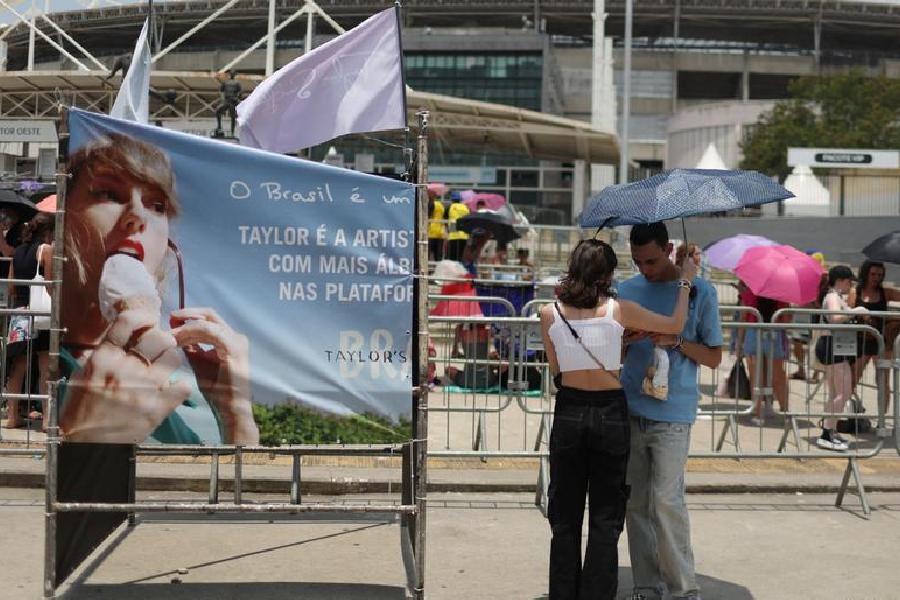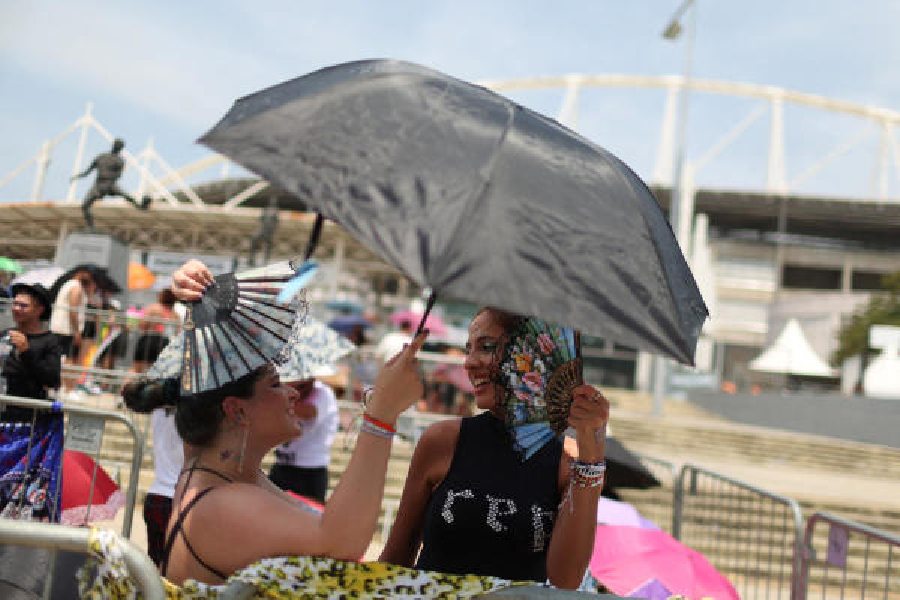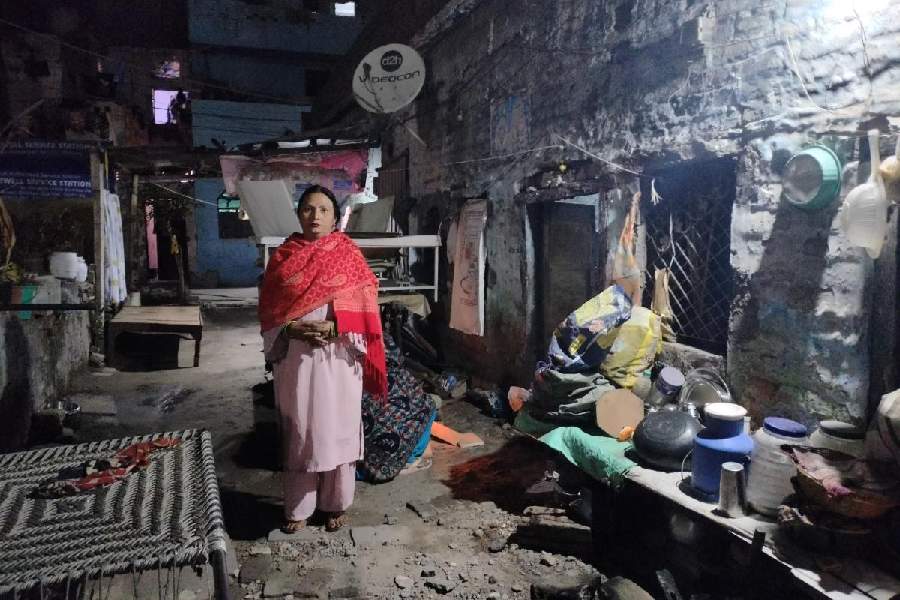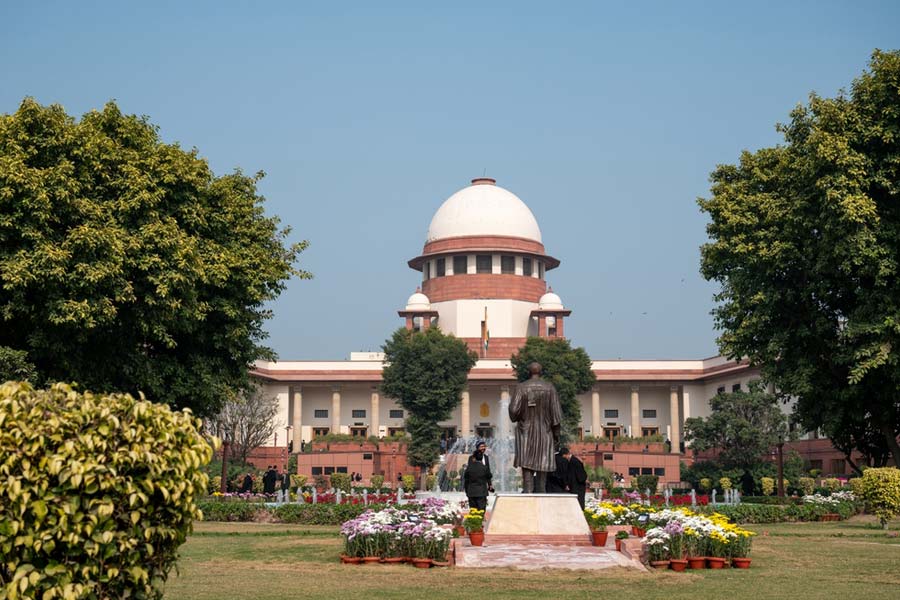The organizers of a concert by US pop superstar Taylor Swift in Rio de Janeiro on Friday are facing criticism after the death of a fan. A 23-year-old woman collapsed and died due to cardiac and respiratory arrest, according to investigations so far.
Almost as soon as the tragedy was announced, people began lashing out at the event organizers. Fans had not been allowed to take water into the stadium despite the blistering heat. It was also apparently hard to obtain drinking water once inside. These difficulties plus the exact cause of death are now subject to a full probe.

Even from the stage, Swift apparently noticed fans' discomfort Deutsche Welle
Even Swift herself noticed the lack of water. Video clips of the concert show her calling for fans to be given water and even launching a bottle of water towards the audience from the stage.
Is it right to point the finger at the organizers?
Asked about whether blame should be attributed to the organizers, two experts warned against jumping to hasty conclusions. The exact circumstances are difficult to determine from a distance, they told DW.
A lot also depends on Brazilian law. "Various parties can be responsible for security at major events," Olaf Jastrob, Chairman of the German Expert Council on Visitor Safety, explains. "It's not just the organisers, but also the stadium operators, the authorities and numerous subcontractors."
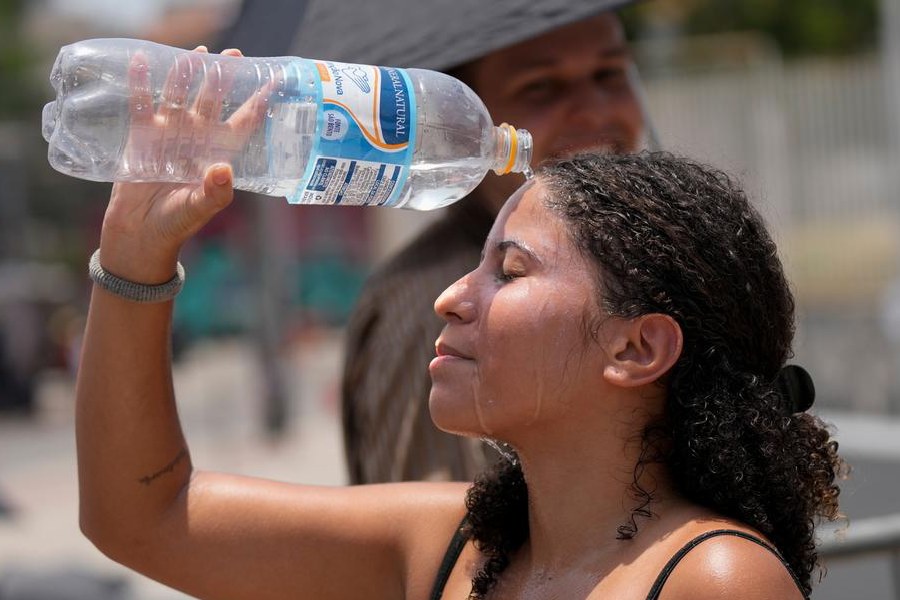
Temperatures reached over 40 degrees Celsius in Rio over the weekend Deutsche Welle
Should more have been done to respond to the heat?
Nonetheless, it is crucial to offer visitors in enclosed spaces enough fluids, Jastrob said. South-east Brazil is currently experiencing a heat wave. Temperatures have reached more than 40 degrees Celsius and are at their highest for this year so far. In Rio de Janeiro, the mercury hit 42.5 on Saturday night. "The weather situation was therefore foreseeable," Jastrob stressed.However, supplying 60,000 fans with water is no mean feat, according to Sven Hansens. "The necessary quantities are also frequently underestimated in Europe," the managing director of Event Safety Consult and deputy chairman of the German Event Safety Association said.One must also bear in the mind the potential behavior of concert-goers. "If a young fan has struggled to get a ticket, queued for hours and somehow manages to get a spot right at the front, they might disregard their basic needs in order to hold on to that spot," Hansen said.
Is global warming changing event planning?
"We no longer organize open air events without meteorologists," Hansen said. This way, large event planners make certain decisions before but also during the event.
"Up until now, the biggest issue in this regard has been the risk of thunderstorms," says the expert. It is common practice for event organizers to insure themselves against financial losses in case an event must be cancelled.
But these days, other forms of extreme weather are relevant too. Organizers also consider the risk that excessively hot weather or strong UV radiation could end events early.

Germany's well known Wacken metal festival was marred by mud this year Deutsche Welle
"In summer, it's relatively normal for events with tens of thousands of visitors to have a three-digit number of first-aid situations. That includes everything from dehydration and heatstroke to insect bites and so on," he said.At Taylor Swift's concert in Rio de Janeiro on Friday, the fire department registered more than 1,000 cases of fainting among the 60,000 attendees.Swift's second concert in Rio had been planned for Saturday but the organizers shifted the show to Monday, when temperatures were expected to be (and indeed were) significantly lower. A court has also ordered that water containers be allowed at the singer's next three upcoming concerts in Sao Paulo and that a supply of drinking water must be ensured.

